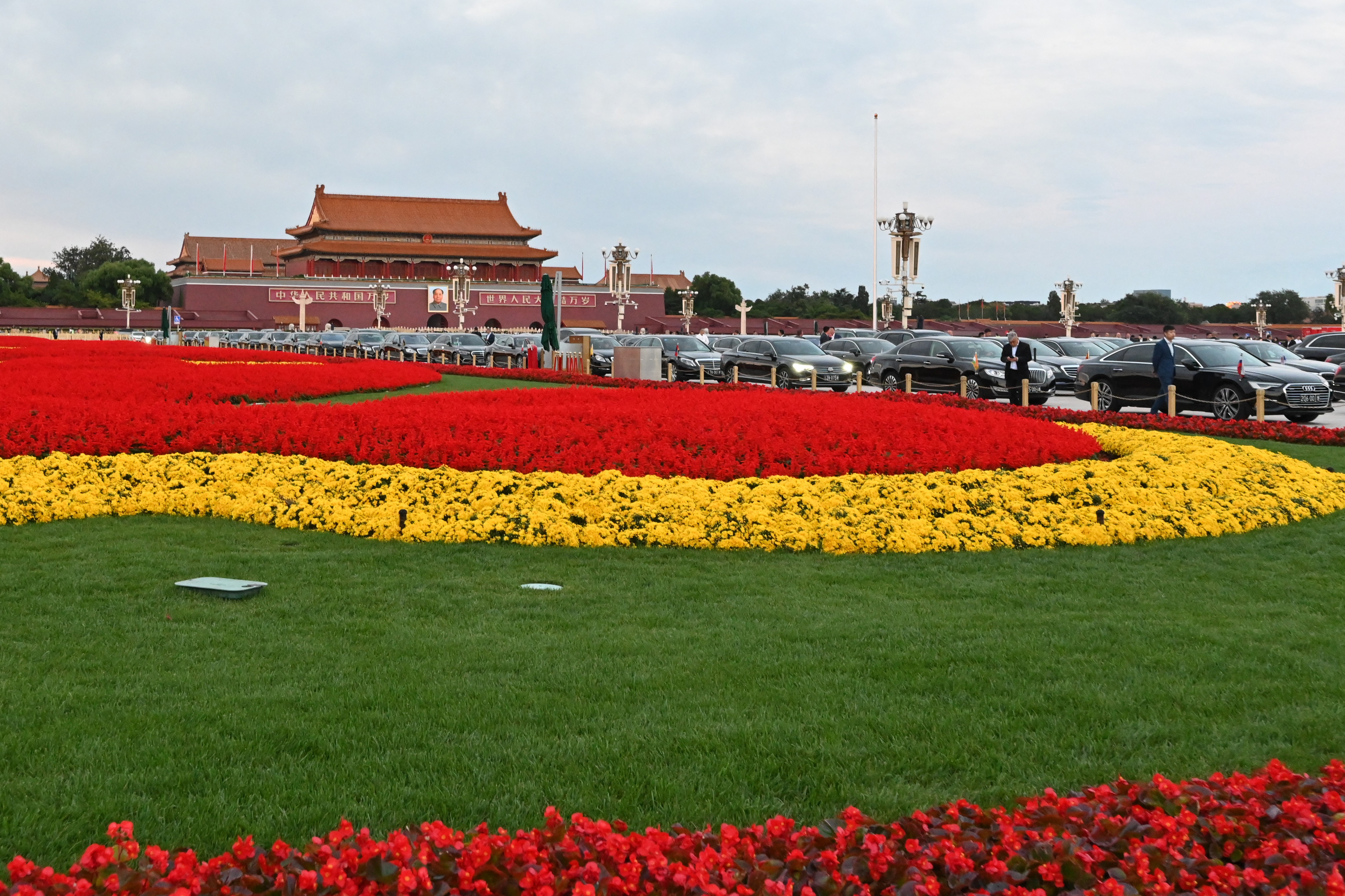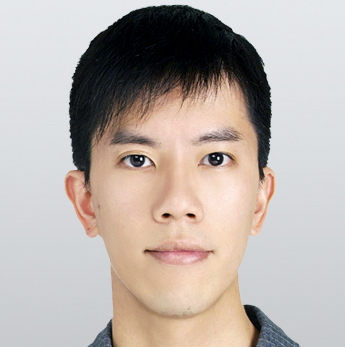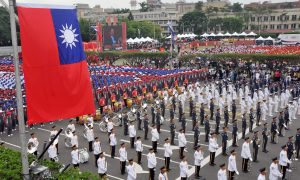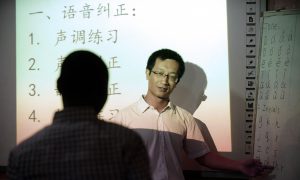Communist China marked its 75th anniversary on Oct. 1 with relatively low-key celebrations, after the regime’s top leader urged the nation to be “vigilant” amid what he described as an increasingly turbulent world.
There were no festivities or military parades in Beijing on Oct. 1. The only notable event was a flag-raising ceremony at Tiananmen Square, held under tight security.
State media published reports lauded what they call China’s remarkable economic advancements during the Chinese Communist Party’s (CCP) decades of rule, without touching on the widespread pessimism regarding the economic outlook, including the impact of a declining population on the labor force and worries about Xi’s tightening grip on the Party controls potentially stunting growth.
In a speech delivered at the state banquet on the eve of National Day, CCP leader Xi Jinping said the nation must support the regime.
Xi also issued a stern warning, urging the nation to be “vigilant” in times of peace and be “prepared for the rainy days.”
“The road ahead will not be smooth,” Xi said at the banquet attended by more than 3,000 Party members and foreign delegates on Sept. 30.
“There will definitely be difficulties and obstacles. We may even encounter major tests such as high winds and rough seas, or even perilous, stormy waves,” Xi said, without providing further details. “No difficulties can stop the Chinese people from moving forward.”
In Hong Kong, the city’s government organized more than 400 activities to foster what it called “a sense of patriotism in the community.”
Chief Executive John Lee noted it’s the first celebration since the city enacted the new security law, known locally as Article 23. Under the new law, which went into effect in late March, offenses such as treason, insurrection, and sabotage now carry a maximum penalty of life imprisonment. On Sept. 19, a Hong Kong man was sentenced to 14 months in jail for wearing a T-shirt bearing a protest slogan, marking the first conviction under the new security law, which has drawn criticism from the United States, the European Union, and other foreign governments.
In a speech at the celebration reception in Hong Kong, Lee said the city is undergoing “a critical period of economic transformation” but added that opportunities outweigh the challenges.
Human Rights Abuses
As the Chinese regime celebrated its national day, overseas dissidents drew attention to the CCP’s ongoing suppression of freedoms and human rights abuses.On Sept. 30, more than 50 international organizations issued a joint statement condemning the Chinese regime’s transnational repression. The Washington-based Hong Kong Democracy Council (HKDC) and the Students for a Free Tibet (SFT) led the statement.
“In recent years, authoritarian leaders around the world have intensified their efforts to silence criticism and intimidate critics abroad,” the statement reads.
“These heinous actions are designed to restrict human rights such as the freedoms of speech and expression, even in countries like the United States where these rights are typically safeguarded.”
The groups pointed to how, during Xi’s visit to San Francisco last November, peaceful protesters were targeted by “groups affiliated with the Chinese Communist Party” through harassment, intimidation, surveillance, and physical violence. “Even [Chinese] consular personnel were seen on the ground” during the street violence, they noted, citing a report by HKDC and SFT published in July.
“We urge the U.S. State Department to consider elevating this as a diplomatic incident and the Justice Department to consider bringing federal charges against those who were responsible,” they wrote.

Hong Kong Police Guard of Honour marches with the flags of China and Hong Kong during a flag-raising ceremony to celebrate communist China's 75th anniversary at Golden Bauhinia Square in Hong Kong on Oct. 1, 2024. (Anthony Kwan/Getty Images)
Amnesty International USA, Freedom House, Human Rights Watch, China Aid Association, and Friends of Falun Gong were among the groups that co-signed the joint statement.
Dr. Erkin Ekrem, interim president of the Munich-based World Uyghur Congress (WUC), said Oct. 1 “marks an important moment to stand united against” communist China, according to a statement.
“For the past 75 years, China has maintained a brutal regime that systematically violates the rights of millions, eroding our cultural and religious identity and silencing dissent,” he added.
The WUC called on Beijing to release the millions of Uyghurs and other Muslim ethnic groups arbitrarily detained in camps and “end the genocidal policies” in China’s Xinjiang region.
Military Aggression
At the forefront of the regime’s aggression has long been Taiwan, and Xi reiterated his ambitions to seize the self-ruled island.During his Sept. 30 speech, Xi emphasized that “Taiwan independence separatist activities” must be stopped and the “one-China principle” must be upheld.
The CCP sees Taiwan as a renegade province that must be united with the mainland. It has attempted to legitimize its territorial claim over Taiwan by arguing that U.N. Resolution 2758 supports the CCP’s “one-China principle,” which is different from the “one-China policy” adopted by the United States.
In response to Xi’s remarks, Taipei’s Mainland Affairs Council, a government agency in charge of handling cross-strait affairs, said in a statement that Taiwan is a “sovereign country.”
The council added that Beijing “should face the reality that the two sides of the Taiwan Strait are not subordinate to each other.”
In September, Japan expressed concerns after a Chinese aircraft carrier entered its contiguous waters, following two Chinese territorial incursions in August that prompted Japan to lodge protests with Beijing.
Japan’s new prime minister, Shigeru Ishiba, has proposed an Asian version of the NATO military alliance to counter the Chinese regime’s increasing military aggression in the Indo-Pacific region.
In recent weeks, the Philippines has criticized the Chinese regime for ramming its boats and blasting them with water cannons, as well as firing flares at its aircraft, with most of the incidents occurring around the contested Sabina Shoal in the South China Sea.
On Oct. 1, Philippine Coast Guard spokesperson Commodore Jay Tarriela said his country’s struggle against China in the West Philippines Sea, which is internationally recognized as part of Manila’s exclusive economic zone, is more than about the Philippines’s sovereignty.
“Allowing China to blatantly disregard the established rules-based order threatens the very foundation that we all depend on,” Tarriela told the National Press Club of Australia, according to his post on the social media platform X.
“This could lead us back to a time when might makes right, undermining the global structures that keep human greed, savagery, and barbarism in check.”


















